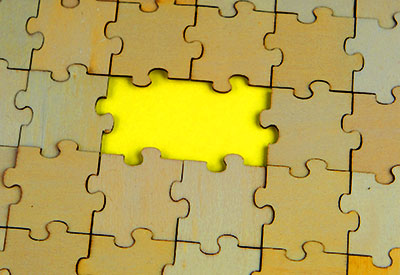In today’s digital age, where convenience often overtakes caution, the temptation to create a do-it-yourself will is stronger than ever. Online platforms and software packages promise quick, affordable solutions for estate planning, marketing themselves as modern alternatives to traditional legal services. Search the web, and you’ll find DIY will options ranging from simple holographic wills written with pen and paper to online will-making services costing anywhere from $20 to $1,000 or more. While holographic wills might seem like the simplest and most affordable choice, they're only legally recognized in about half the states, and even where valid, they're frequently challenged in court due to questions about authenticity, clarity and completeness. Unfortunately, initial savings often prove to be a costly illusion, as the consequences of DIY estate planning can lead to catastrophic financial and emotional outcomes for families.
What are the risks of a do-it-yourself will?
When someone creates a DIY will, the most immediate risk is that the document might not meet their state's legal requirements for validity. Every state has specific rules about how wills must be executed, including requirements for signatures, witnesses and notarization. For instance, in most states, a will must be signed in the presence of two witnesses who also need to sign the document. If these formalities aren't followed precisely, the entire will could be declared invalid, meaning a probate court would distribute assets as if no will existed at all.
Another significant problem arises from unclear or ambiguous language. While legal terminology might seem unnecessarily complex, lawyers use specific words and phrases that have been tested in courts and have clear legal meanings. When people write their own wills, they often use everyday language that can be interpreted in multiple ways. For example, writing "I leave my money to my children" seems straightforward, but it raises several questions: Does this include stepchildren? What about children born after the will was written? Does "money" include investment accounts and retirement funds or just cash in bank accounts?

Yet another common mistake is failing to account for all assets, which can lead to partial intestacy – where some assets are distributed according to the will while others follow state intestacy laws. Similarly, DIY wills often fail to include contingency plans if a has passed away. What happens if a named beneficiary dies before the testator? What if specified property has been sold or replaced? Professional estate planning anticipates these scenarios.
Perhaps even worse, DIY wills often fail to address complex family situations effectively. Modern families frequently include stepchildren, half-siblings or unmarried partners. Without careful, professional estate planning, these important relationships might not be properly recognized or protected. In addition, if someone has a child with special needs, a DIY will might inadvertently disqualify them from important government benefits by leaving them an outright inheritance rather than creating a special needs trust.
Business owners face additional risks with DIY wills. Transferring business interests requires careful consideration of operating agreements, buy-sell provisions and succession planning. A DIY will might conflict with existing business documents or fail to provide for smooth business continuation.
The cost of fixing problems with a DIY will usually far exceeds what professional estate planning would have cost initially. More importantly, these problems arise at a time when families are already dealing with the emotional stress of losing a loved one. Having a legally sound, professionally prepared will helps ensure that your final wishes are carried out smoothly and your loved ones are spared unnecessary complications during an already difficult time.


What are the most frequently overlooked elements in DIY wills?
Many people creating DIY wills focus primarily on major assets like homes and bank accounts while missing several crucial elements. For instance, digital assets often get overlooked entirely. In today's world, we accumulate significant digital property including cryptocurrency, social media accounts, online photos, emails and digital business assets. These require specific handling in your will because they're governed by unique privacy laws and terms of service agreements. Without proper provisions, your executors may find themselves unable to legally access or manage these digital assets after your death.
People writing their own wills also frequently forget to address personal property distribution effectively. While they might specify who gets valuable items like jewelry or artwork, they often fail to provide guidance for sentimental items that can cause significant family discord. Something as simple as a family photo album or grandmother's recipe collection can become a source of conflict without clear instructions.

Another commonly overlooked aspect involves contingency planning. A well-drafted will should address various "what if" scenarios: What happens if a named beneficiary dies before you? What if you sell or replace specifically bequeathed property? What if your estate's value changes significantly? DIY wills often fail to include these crucial backup provisions, potentially leading to unintended outcomes.
The coordination of beneficiary designations presents another frequent oversight. Many people don't realize that certain assets, like life insurance policies and retirement accounts, pass outside of their will through beneficiary designations. If these designations don't align with your will's provisions, your intended distribution plan may be defeated regardless of what your will says.
Special family situations require particular attention that DIY wills often miss. For instance, if you have a loved one with disabilities, leaving them an outright inheritance could disqualify them from essential government benefits. Similarly, blended families need careful planning to ensure children from previous marriages aren't unintentionally disinherited.
Tax implications often get insufficient consideration in DIY wills. While federal estate taxes currently affect only very wealthy estates, state estate taxes may have lower thresholds. Additionally, proper will planning can help minimize income taxes for beneficiaries who inherit certain types of assets, like IRAs or appreciated property.
Understanding these commonly overlooked elements helps explain why professional will preparation provides value beyond simple document creation. It ensures comprehensive coverage of all aspects of your estate while avoiding potential pitfalls that could affect your loved ones' future security and relationships.
What are some long-term costs of DIY wills?
When a do-it-yourself will fails, the consequences can create devastating financial and emotional impacts that affect families for generations. Probate litigation costs can spiral into tens of thousands of dollars as family members dispute unclear or invalid provisions. A seemingly simple will contest can quickly evolve into complex legal proceedings requiring multiple attorneys, expert witnesses and years of courtroom battles.
Business interests may lose value without clear succession planning. Real estate can deteriorate while ownership remains unclear. Investment accounts may miss crucial rebalancing opportunities during lengthy probate proceedings.
Beyond legal fees, administrative expenses multiply as professionals step in to correct DIY will errors. This typically involves hiring accountants, property appraisers and business valuators. The cost of untangling improper documentation and correcting mistakes often exceeds what professional estate planning would have cost by tenfold.
Perhaps most devastating are the emotional costs. Legal battles over unclear wills frequently destroy sibling relationships and split extended families. These emotional wounds add both financial and personal costs that can span generations.
Is professional estate planning worth it?

Think of estate planning like building a house. You could try to draw up the plans yourself to save money, but without an architect's expertise, you might miss crucial structural elements that could cause the house to fail when you need it most. Similarly, professional estate planning provides a solid foundation that protects your legacy and loved ones. They ask questions you might not think to consider: What happens if your beneficiaries divorce? How can you protect an inheritance for a child with special needs? What's the most tax-efficient way to transfer your business? These considerations go far beyond simply stating who gets what.
Professional estate planning provides comprehensive protection that DIY solutions cannot match. Experienced estate planning attorneys:
- Conduct thorough asset inventories and valuations.
- Create customized plans that address unique family dynamics.
- Implement tax-efficient transfer strategies.
- Establish appropriate trusts for specific situations.
- Ensure compliance with current state and federal laws.
- Provide regular plan reviews and updates.
- Coordinate with other professional advisors.
- Address international asset considerations.
- Create comprehensive business succession plans.
- Structure appropriate charitable giving strategies.
Conclusion
Creating a do-it-yourself will might seem like an attractive cost-saving measure, but the potential risks far outweigh the initial savings. From invalid documents and ambiguous language to overlooked assets and tax implications, DIY estate planning can lead to significant financial and emotional costs for families. The complexity of modern assets, including digital property and business interests, combined with diverse family structures, demands professional expertise. By working with an experienced estate planning attorney, you can ensure your wishes are legally sound, clearly documented and properly executed.



